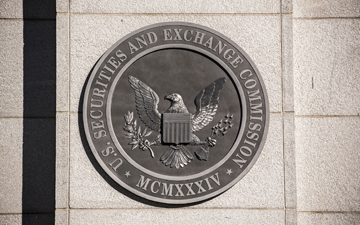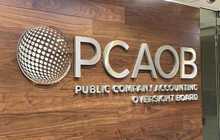Canadian accountants take note as SEC reminds accounting firms of the rules involving other auditors

KPMG Canada fined in 2022 over use of other auditors in multinational audit
TORONTO, March 19, 2023 – Canadian accounting firms may need to review their practices after Paul Munter, the chief accountant of the US Securities and Exchange Commission, issued a public reminder to about involving other auditors in multinational audits. In October 2022, KPMG Canada was one of three national affiliates of KPMG International sanctioned by the Public Company Accounting Oversight Board for failing to disclose unregistered firm participation in public company audits.
PCAOB Rule 2100 requires that any accounting firm playing a substantial role in the audit of an issuer be registered with the US audit watchdog. In the increasing integration of world economies and the resultant globalization of multinational public companies, this includes the audits of companies that have operations in jurisdictions other than their headquarters or primary markets.
KPMG Canada, for example, was sanctioned over an audit conducted in Romania. The Canadian firm misidentified the component auditor involved in audits of the Canadian multinational Celestica in Oradea, Romania. KPMG Global has a member firm called KPMG Audit SRL (“KPMG Audit”) headquartered in Bucharest, Romania. KPMG Canada incorrectly identified PCAOB registrant KPMG Romania as a participating firm instead of KPMG Audit.
According to the SEC, 26 per cent of all issuer audit engagements and 57 per cent of large accelerated filer audits involved the use of other auditors by the lead auditor, in 2021. The SEC notes that recent academic research indicates an inconsistent quality of work performed by other auditors, which is potentially detrimental to investor confidence in the quality of financial information.
US audit watchdog sees shortcomings in audit engagements
PCAOB staff have observed technical but critical issues in engagements involving the use of other auditors. As reported by Canadian Accountant, “a common theme that emerged in 2022 was the prevalence of instances where firms did not comply with PCAOB rules on communicating with audit committees. The PCAOB wants firms to more attentive when identifying other auditors and their audit hours rather than confuse or even mislead audit committees.
Why the emphasis on accurate information? Quality control, according to the Munter, including consistency throughout the engagement, appropriate policies and procedures, and supervision of the audit engagement that encompasses the work of other auditors, since network firms such as those at the Big Four may have different systems of quality control.
Munter says audit committees could also be asking their auditors questions such as:
- Are there other participating accounting firms that play a substantial role in the audit?
- If so, are they registered with the PCAOB and subject to PCAOB inspections?
- How does the lead auditor supervise the audit work performed by other auditors?
- How does the lead auditor assure that the work is being performed by other auditors that understand the requirements of the applicable financial reporting framework and the PCAOB’s auditing and related professional standards?
The bottom line, according to Munter, is that the SEC does not consider financial statements to be audited if an unregistered firm plays a substantial role in the audit. Its expectation is that “the level of audit quality in audits involving other auditors should be consistent and robust.”
Colin Ellis is a contributing editor to Canadian Accountant. Title image: iStock.








(0) Comments